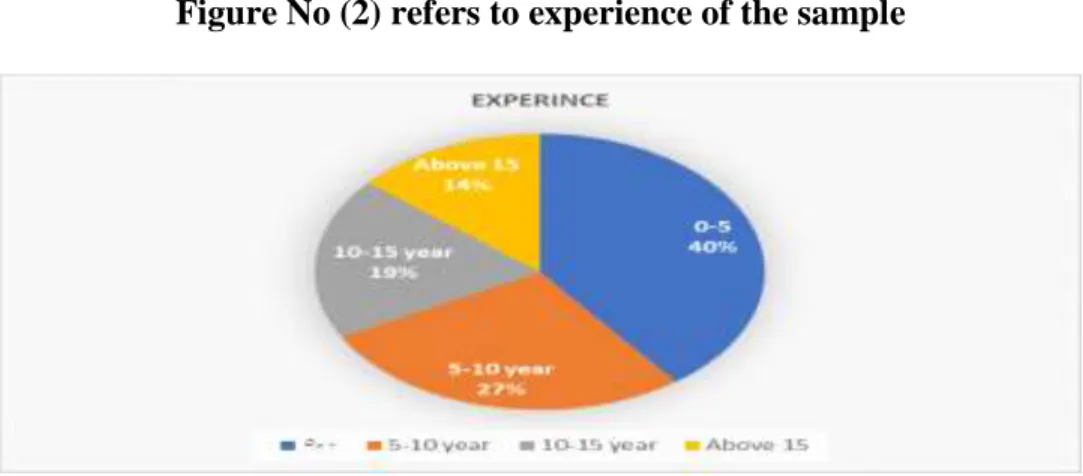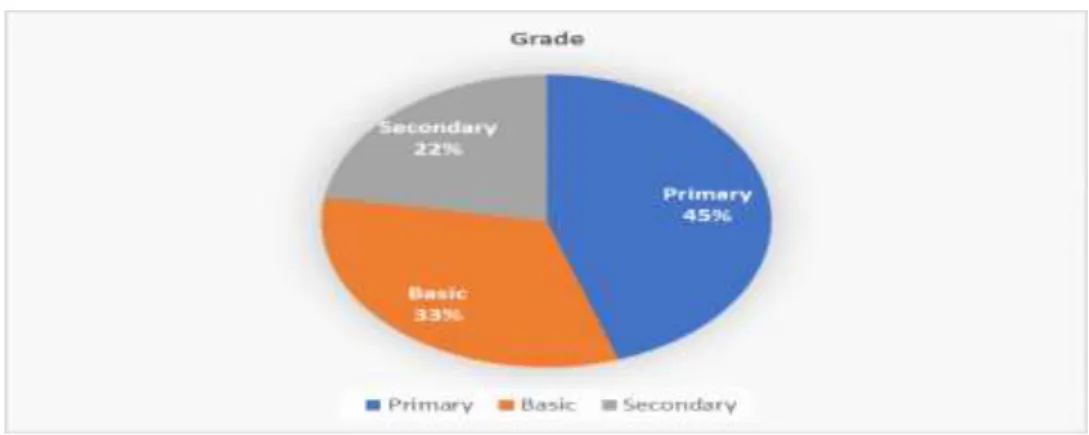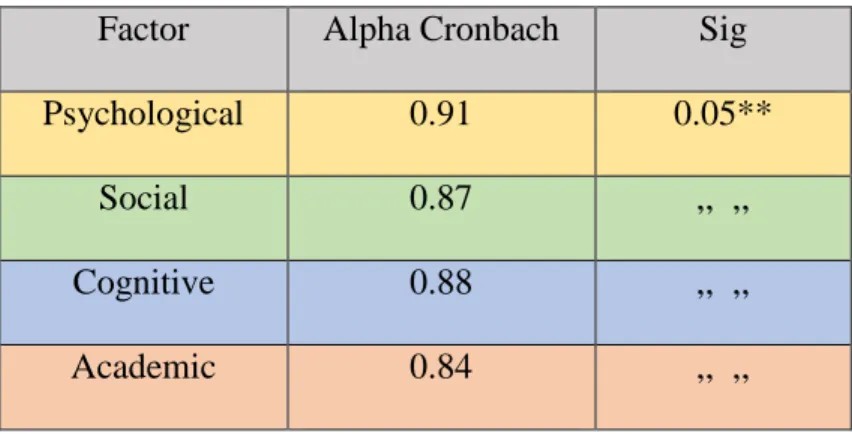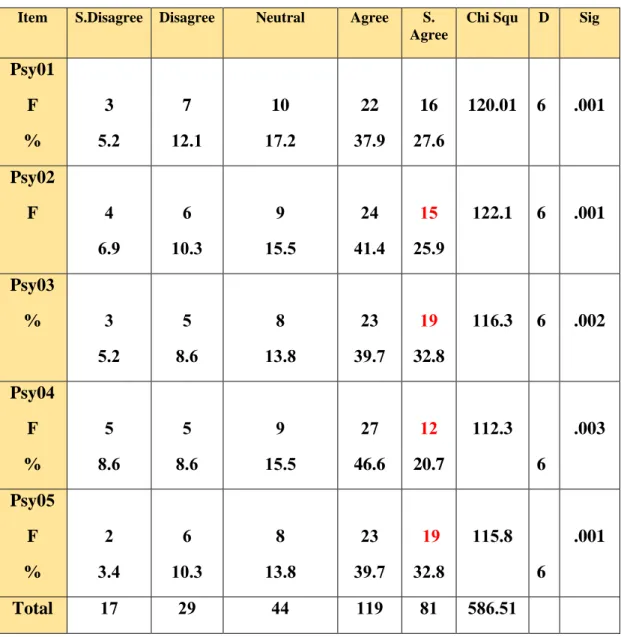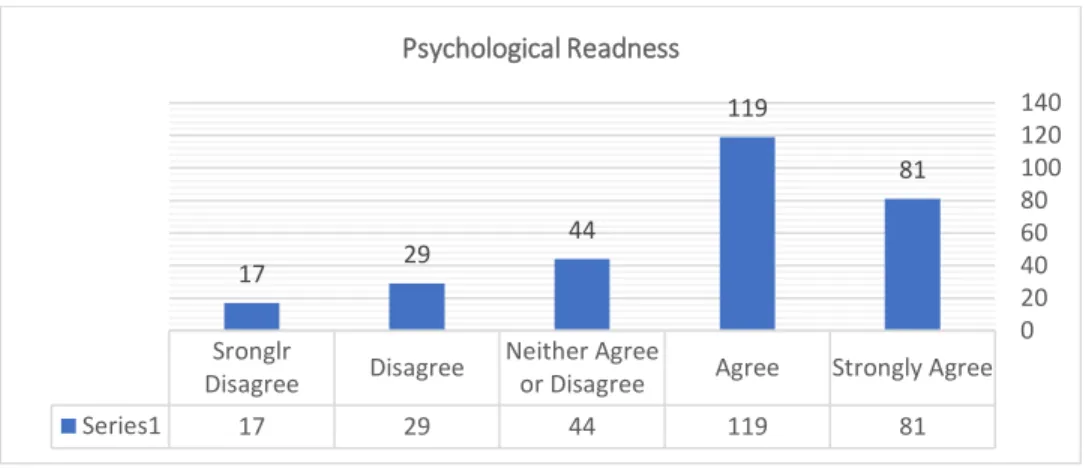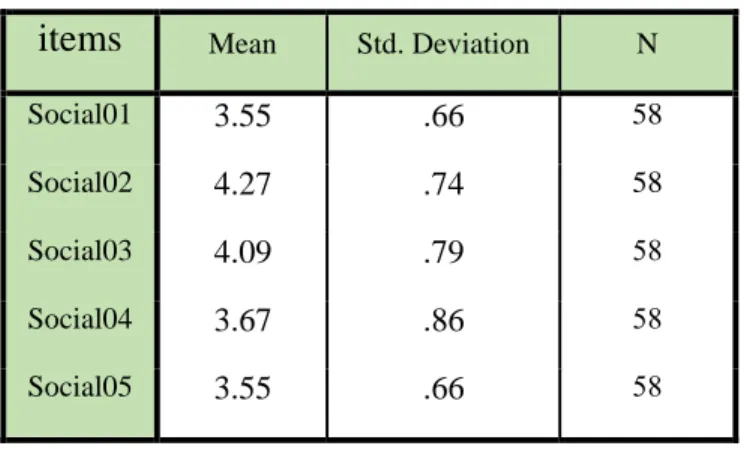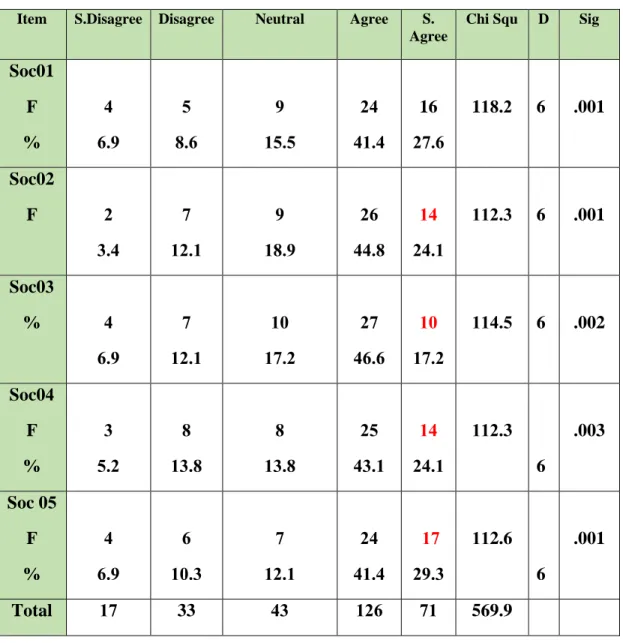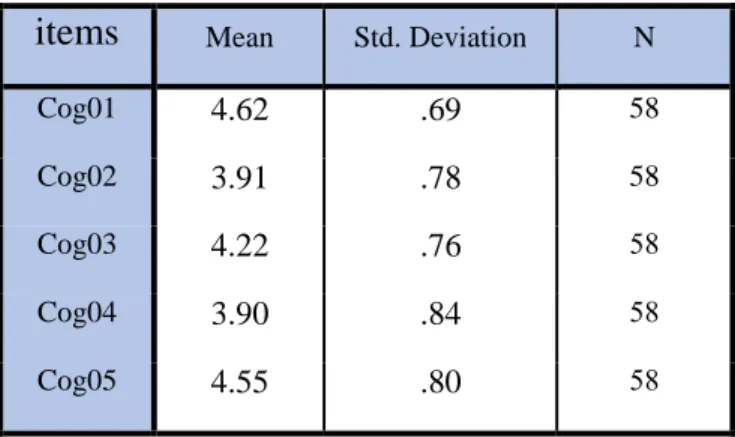Table (6) Average of the items Statistics for the Social Factor 41 Table (7) Chi-Square & DF for the Social Readiness Factor for Inclusive Education. Table (10) Mean of the Items Statistics for the Academic Factor 47 Table (11) Chi-Square& DF for Academic Readiness Factor for Inclusive Education.
CHAPTER1: INTRODUCTION
- Background of the Topic
- Purpose of the Study and Research Questions
- Significance of the Study
- Structure of the Dissertation
This research highlights the need for psychological, social, cognitive and academic readiness of teachers to implement inclusive education effectively. Investigating teachers' willingness to implement inclusive education is more important than focusing on their beliefs and attitudes towards inclusion.
CHAPTER (2) – LITERATURE REVIEW
Introduction
Inclusive Education: Definitions and Theories
The Inclusive Education movement emphasizes the idea that all students, including those with SEND, should have equal access to a high-quality education and the opportunity to interact with their peers in the same classroom (Gupta and Tandon 2018; UNESCO 1994). Because of this, the term "inclusive education" refers to the practice of grouping students in the same classroom of the same age but with varying abilities and capacities (Armstrong & Spandagou 2009).
Behaviourism-based Inclusive Education Practices
Ertmer and Newby (2013) stated that learning theories are important to curriculum designers because they provide instructional strategies and techniques needed to facilitate classroom learning and help implement inclusive education in the general education setting. AlShammari (2019) noted that practices related to comprehensive behavior-based education are included in popular instructional approaches such as clear or direct instruction.
Cognitivism-based Inclusive Education Practices
- Students with SEND Rights
- Inclusive Education Between Acceptance and Rejection
- Inclusive Education Types
The academic and social inclusion of special education groups is one of the most controversial issues in the educational community, and this is due to the differing views on them. SEND's situation with their ordinary peers influences the implementation of the educational program as a whole.
Total Inclusion: It is intended to enrol students with SEND with ordinary students in the same regular classes all the time, where these students receive a joint educational program, and this type
Partial integration: called spatial integration, where students with SEND join mainstream students in the same school building but in their own classes or in their own class units on the same school site, and students with SEND are taught in special classes and sometimes before the special education teacher, and they also receive a joint education program with ordinary students in ordinary classes, and the education course must be organized according to a schedule drawn up in advance, so that the transition between the classes proceeds smoothly.
Social Inclusion in Public Education Schools: It is the integration of students with SEND into public classes with various school activities such as educational, recreational and sports trips, as
Societal Social Integration: It means integrating individuals with disabilities with ordinary individuals in society, by integrating them in the field of employment, housing and work, and it is
- SEND Teachers and Inclusive Education
- Teachers' attitudes and readiness towards inclusive education
- UAE efforts to support Inclusive Education for SEND
Yet they do not receive appropriate professional development that supports them to implement inclusive education effectively. In many studies, teachers' readiness to work with children with disabilities has been mainly investigated to identify teachers' attitudes towards inclusive education and the extent of its impact on the social interaction of students with SEND in schools (De Boer A., Pijl SJ, Minnaert A. Cagran B., Schmidt M., etc.). There are many studies related to inclusive education which showed that most of the research focused on teachers' instructional capacity to help children with SEND.
It is significantly more likely that the goals of inclusive education will be achieved if teachers have a positive impression of inclusive education. On the other hand, educators' negative attitude towards inclusive education can contribute to the development of communication barriers between children with special needs and their educators. The effectiveness of inclusive education in regular classes largely depends on teachers (Mitchell, 2010), and the readiness of teachers is one of the most important components in the successful implementation of inclusive education.
Education has been identified as a top priority in the UAE, so the government has taken measures to defend the rights of children with SEND by promoting inclusive education to provide educational services to students with SEND as well as students who have additional needs such as eg. gifted and talented students. Special education programs and services have grown and expanded since 1979 in the UAE to include students with SEND in higher grades, as well as to recognize a greater range of special education categories to enhance inclusive education.
CHAPTER (3) – METHODOLOGY
- Introduction
- Research Design
- Research Philosophy
- Research Methodology
- Research Population
- Gender: Figure No (1) indicated the distribution of the study sample regarding to gender as follows
- Grade: Figure No. 3 shows how the study sample was split up by Grade as follows
- Tool and Data Collection
- Validity and Reliability
- Research Ethics
- Research Limitations
- Test Analysis
- Summary
The question of inclusion is one of the most important philosophical questions raised today in the work with special educational needs and disabilities, as it depends on the foundation that must be held to ensure its success and to overcome the problems it faces for. The study population includes all teachers working in a private school in Sharjah from different disciplines where the school applies the inclusion system in its classes, therefore the study community has sufficient knowledge about the issue of inclusion and its challenges and they were trained to deal with SEND when merged with ordinary students. With regard to the literature review and previous studies on the topic of the study, the researcher prepared a questionnaire on the readiness of teachers to implement inclusive education effectively.
A questionnaire was applied in the present study after verifying its validity and reliability, this verification was done by two methods, the first one was through the validity of the arbitrators, where the researcher administered the questionnaire in its first form to a group experts and arbitrators, and his phrases were initially 25 items, which became (20) items after some of them were deleted, some were modified, and the validity was calculated by the Cronbach's alpha coefficient, which was in the four factors respectively , these transactions are statistically significant, indicating the validity and reliability of the questionnaire. Table (1) indicates that all factors of the Readiness of Teachers to Effectively Implement Inclusive Education Questionnaire are valid and reliable. The purpose of the questionnaire was clearly defined before its application began, and the questionnaire was distributed electronically, after explaining how to answer it to the intended sample.
Participants then signed a consent form at the beginning of the questionnaire stating that they had the right to withdraw from participation at any stage. Overall, the sample size was acceptable in light of the study population, which facilitated the statistical analysis process and the quality of the tests that were statistically performed.
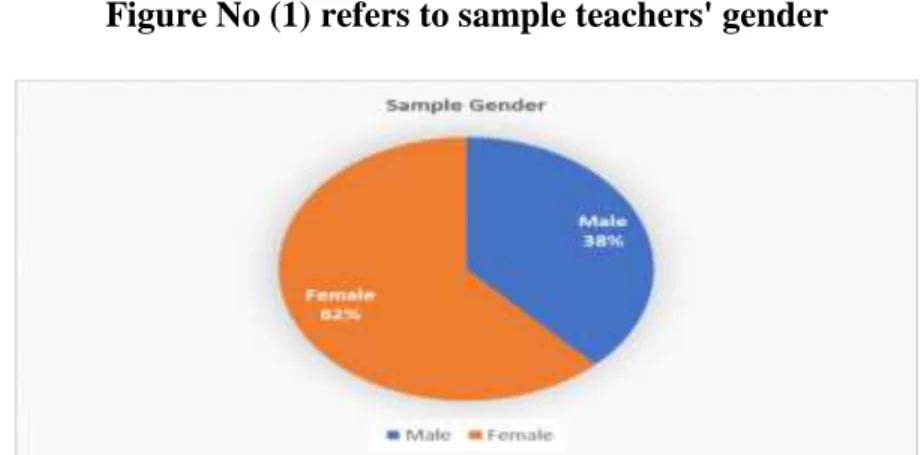
CHAPTER (4) – FINDINGS
Introduction
Questionnaire Findings
Findings of the First Question
- Teachers' readiness in terms of psychological factors
Table (7) Chi-square & DF for the social readiness factor for effective inclusive teacher education. These findings show that the social readiness factor for the effective implementation of inclusive education was high. In general, the findings of this question indicate a high social readiness of teachers for the effective implementation of inclusive education.
This means that the cognitive readiness for effective implementation of inclusive education was high and statistically significant. Table (9) Chi-square & DF for the factor of teachers' cognitive readiness for effective implementation of inclusive education. This means that the academic readiness for effective inclusive teacher education was high and statistically significant.
Table (11) Chi- Square& DF for Academic readiness factor for the Inclusive education effective of teachers. In general, findings from this question indicate the high academic readiness for the teachers to implement inclusive education effectively.
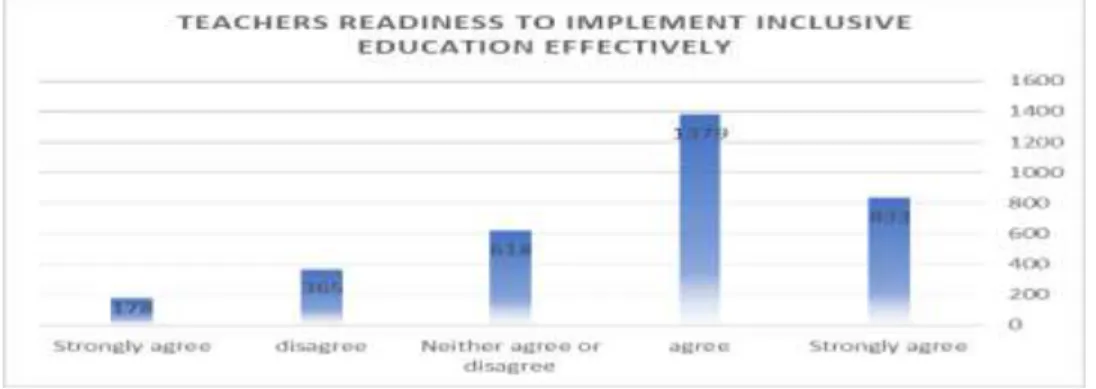
DISCUSSION AND CONCLUSION
- Introduction
- Discussion
- Conclusion
It is a mainstream classroom environment in a mainstream school or in a mainstream school special classroom or so-called resource room that provides services for SEND for a period of time. Obstacles and needs must also be looked at, and then a set of programs that prepare the process of inclusion must be carefully planned, among which the most important topic was teachers and attention to their training to work in inclusive classes and the development of their motives, whether psychological, cognitive, social or academic. The findings of the current study agreed with what many studies have reported about the need to pay attention to the competencies of teachers, especially inclusion teachers.
The educators made great efforts to achieve the best practices to support students with SEND, and the area of concern for the teacher and the student was the focus of the first concern for the success of the Inclusion. It was therefore necessary to pay attention to the development of the teachers' motivation for the success of this inclusion and his willingness to do so, and therefore the teacher, like the student, also needs support. In an inclusive environment, support for teachers is an essential strategy to accommodate students with SEND in the mainstream classroom.
Therefore, the results of the current study confirm the efforts that have been and continue to be made in the area of SEND support in the United Arab Emirates, where teacher preparedness was high across the board, confirming these efforts. This confirms the UAE's efforts in inclusive education and providing an appropriate education for all, an education that takes into account the needs of SEND and their mainstream peers.
2008) "Special Needs Education in the United Arab Emirates (UAE): A Systems Perspective," Journal of Research in Special Educational Needs, 8(2), pp. Francisco, Marian Patricia Bea; Hartman, Maria & Wang, Ye. 2007) "Primary School Teachers' Attitudes Towards the Inclusion of Learners with Special Educational Needs in the Private Sector: A Perspective from Dubai", International Journal of Special Education, 22(2), pp. Inclusive education in the Middle East. 2013) “Inclusion of Special Needs Students in UAE Higher Education: Issues and Challenges”, Journal of International Education Research, 9(4), pp.
A Cross-Cultural Study in Six Nations", European Journal of Special Needs Education Theoretical Foundations to outline Human Well-being: Metaanalytic Literature Review for definition Empowered Life Years. Inclusive teaching practice in Uganda: evidence practice of itinerant teachers working with visually impaired children in local mainstream schools, International Journal of Inclusive Education. Perception of primary school teachers towards inclusive education in Hohoe District of Ghana." International Journal of Inclusive Education.
Can teachers' self-reported efficacy, concerns and attitudes towards inclusiveness scores predict their actual inclusive classroom practices?,” Australasian Journal of Special Education, 40(1), pp. Mainstream teachers' concerns about inclusive education for children with special educational needs and disability in England under pre-pandemic conditions.
APPENDIX
Questionnaire
